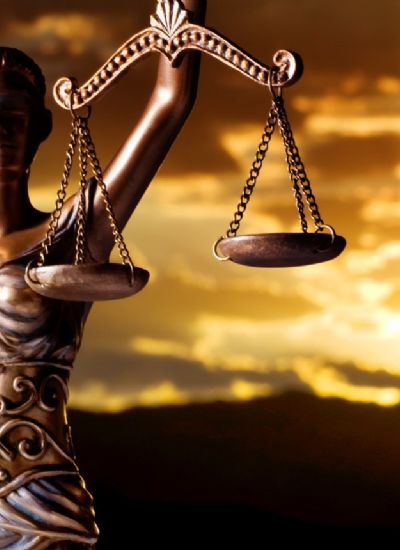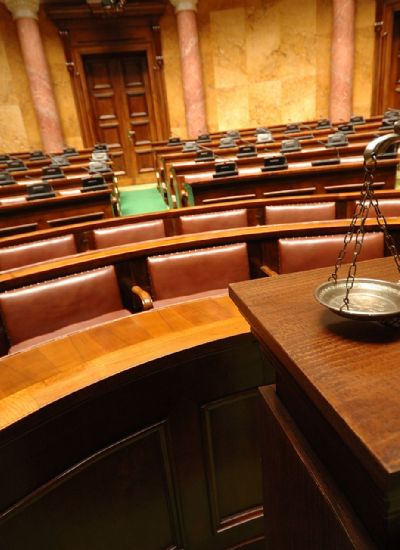Presidential Temperament: Obama Vs. Mccain
Looking beyond the sound bites of what has become an increasingly sound-bite driven campaign, it is the candidates true temperaments we need to consider. The next President will inherit many tough problems from George W. Bush. How he goes about addressing them may be just as important as the political ideology that influences his solutions.
Historically speaking, it would probably be a good bet to take McCain in the Presidential race, as a major party Artisan candidate has never lost a November election. However, sure things never are. Only this past weekend, a 38-1 long shot defeated Big Browns bid for the Triple Crown. Lorena Ochoa lost her bid for the LPGA Grand Slam. Even Tiger Woods has been vulnerable. So, my friends, this roller coaster election still promises more ups and downs than your stock portfolio.
Before Mrs. McCain begins choosing the new White House china pattern, lets take a look at our presumptive candidates and what we might expect from an Obama or McCain presidency. Specifically, how will the new Presidents temperament impact the country as we move on from the last 8 years? Since history does have a tendency to repeat itself, perhaps the best way to see how our candidates would behave if elected is to look at their most recent predecessors who share the same temperament and type.
Lets look first at John McCain and his Artisan predecessors. It turns out we dont have to go back far at all to find one George W. Bush is also an Artisan Promoter. Gleaning from his television appearances and press interviews, it does appear that with John McCain, we would be getting a repeat performance of George W. Bushs presidency. But, since Bush is currently the most unpopular president of all time, lets not tar McCain with that brush. It may be more instructive to look at another Artisan Promoter president, Lyndon B. Johnson (LBJ).
There are a number of similarities between LBJ and a potential McCain presidency; they share some very strong traits. Each follows a fellow Artisan Promoter into the office; their predecessors come from elite, super-wealthy, East Coast families. Each is incredibly sure of his own abilities as a troubleshooter, and sure that he can win, no matter how dire the situation. Both men would inherit a far-off war that would show no signs of being winnable from a U.S. perspective; civil wars in countries with borders drawn by outsiders who ignored the realities of the regions cultures. Neither takes the Big Picture view; they dont seem to consider the results of their actions, outside the current playing arena. Hence, LBJ escalated, and continued to escalate, Americas involvement in Southeast Asia, despite his own advisors telling him that the strategy was doomed. The war must be won at all costs! (Sound familiar?)
McCain doesnt deviate from this script. Notably, he has taken to ruminating lately that the Vietnam war was winnable and that it was only lost due to a lack of will by the American People, not because it was un-winnable militarily. Hes pretty clear that he will follow Bushs strategic footsteps in Iraq in fact, he has stated that it wouldnt bother him, if we stay there for 100 years. When questioned about massive war spending and its effect on the American economy, he is as sanguine as LBJ ever was. In other words, the economy is of much less interest to him than the war and combating terrorism. Like LBJ and his Gulf of Tonkin ruse, McCain also seems unwilling to challenge the Bush administration propaganda linking Al Qaeda to Saddam Hussein, and now to the Iraqi insurgency.
These traits, and the complete lack of introspection exhibited by both LBJ and John McCain, point toward a McCain Presidency being very much like that of LBJ. Strong-willed, stay-the-course, youre either with me, or against me a very stubborn mentality. We may see individual decisions and actions, such as LBJs historical Civil Rights legislation of 1964, that hint at greatness. But every decision, every program, will tend to be measured on its immediate implications, without considering the Big Picture, or what will occur in aggregate in the future.
If you believe in the current course, its easy to support Mr. McCain. If you are looking for someone willing to question his own beliefs - to back down and accept either criticism or contradictory advice at times, McCains temperament simply wont go there. Though his record shows a consistency in action over his career (he supported the Iraq invasion from the start, and has been its staunchest supporter even when facing overwhelming public opposition), he can appear chameleon like. He says exactly whats on his mind at the moment, and moments change. He is completely sincere when he admonishes the President regarding the use of torture in military interrogations. Hes just as sincere when he later votes against a Senate bill that would outlaw use of such torture. In his mind, this is not a conflict, a lie, or a deception. He lives in the moment not yesterday, and not tomorrow.
For Barack Obama, there are fewer past presidents to compare actually, there is only one. Dwight David Eisenhower was a Republican, so again I can steer away from areas of political ideology and address what kind of president Senator Obama might be. As Organizer Rationals, Obama and Eisenhower share a number of visible traits. Neither purposefully projects the typical Rational persona in his public appearance. Noted by historians as a very tense man, Eisenhower was able to fashion a public image of an amiable, sunny, sky-blue optimist with enormous patience. Serving under Douglas MacArthur in the Philippines, he was the speech writer behind MacArthurs reputation for eloquence. He tempered his positions on many divisive issues, and frequently took actions that were more liberal than his Democratic successor (JFK) in supporting civil rights and warning against the military-industrial complex. Similarly, Barack Obama masks the hard-driven Organizer Rational intensity behind an easy smile; he has become known (positively by supporters, negatively by detractors) as Joe Cool. His eloquence in delivering written speeches has become almost legendary, but like Eisenhower, this eloquence comes from his skill with language, as opposed to an Artisan ability to perform. And Obama has, like Eisenhower, tempered some of his positions on issues that are dear to his (in Obamas case liberal) base he supports off-shore oil drilling, nuclear power, and clean coal.
What else can Eisenhower tell us about a potential Obama presidency? Ike was a strategic thinker who was masterful at seeing the Big Picture. So, important decisions received a great deal of thought and contingency planning. Pragmatism outweighed ideology in his decision making process. Eisenhower appointed five Supreme Court justices during his tenure; political ideology doesnt seem to have been a consideration in his decision process, as the appointments ranged from moderately conservative (Potter Stewart) to very liberal (William Brennan). Though he projected a sunny public exterior, he was a demanding and involved Chief Executive, who expected subordinates to give honest input, even if contrary, into the planning process. According to the book Presidential Temperament, by David Keirsey and Ray Choiniere, Dwight Eisenhower had a well-developed ability to work with people. He could be patient, yet persuasive; tactful, yet dominant. He could formulate his own opinions and still listen thoughtfully to opposing views; he could disagree with his subordinates views and still work to reconcile them with what needed to be done. Another Rational president, Abraham Lincoln, exhibited this trait most strongly when he appointed his strongest political foes to his cabinet at the darkest moment in American history. To solve the hardest problems, a leader needs to encourage strong ideological debate in formulating the solutions.
An Obama presidency that reflected these characteristics of Rational temperament would be a definite contrast to one of Operator Artisan John McCain. Of the two, Senator McCain is more comfortable in making quick decisions. McCain is more at home in the moment, the reactive, tactical world of daily politics where spontaneity, improvisation, and deal-making are key. Barack Obama is more comfortable in a Big Picture world, where comprehensive strategies can be developed before leaping to action. The two candidates reactions to the recent Wall Street meltdown were a good window into the differences between how the two men react to a crisis.
Writing about Presidential temperaments was personally enlightening it gave me reason for reading about and observing the candidates more extensively than I otherwise would have done. Perhaps not surprisingly, it has strongly influenced my own opinions of the candidates and how I will vote in this historical election on November 4th.
Historically speaking, it would probably be a good bet to take McCain in the Presidential race, as a major party Artisan candidate has never lost a November election. However, sure things never are. Only this past weekend, a 38-1 long shot defeated Big Browns bid for the Triple Crown. Lorena Ochoa lost her bid for the LPGA Grand Slam. Even Tiger Woods has been vulnerable. So, my friends, this roller coaster election still promises more ups and downs than your stock portfolio.
Before Mrs. McCain begins choosing the new White House china pattern, lets take a look at our presumptive candidates and what we might expect from an Obama or McCain presidency. Specifically, how will the new Presidents temperament impact the country as we move on from the last 8 years? Since history does have a tendency to repeat itself, perhaps the best way to see how our candidates would behave if elected is to look at their most recent predecessors who share the same temperament and type.
Lets look first at John McCain and his Artisan predecessors. It turns out we dont have to go back far at all to find one George W. Bush is also an Artisan Promoter. Gleaning from his television appearances and press interviews, it does appear that with John McCain, we would be getting a repeat performance of George W. Bushs presidency. But, since Bush is currently the most unpopular president of all time, lets not tar McCain with that brush. It may be more instructive to look at another Artisan Promoter president, Lyndon B. Johnson (LBJ).
There are a number of similarities between LBJ and a potential McCain presidency; they share some very strong traits. Each follows a fellow Artisan Promoter into the office; their predecessors come from elite, super-wealthy, East Coast families. Each is incredibly sure of his own abilities as a troubleshooter, and sure that he can win, no matter how dire the situation. Both men would inherit a far-off war that would show no signs of being winnable from a U.S. perspective; civil wars in countries with borders drawn by outsiders who ignored the realities of the regions cultures. Neither takes the Big Picture view; they dont seem to consider the results of their actions, outside the current playing arena. Hence, LBJ escalated, and continued to escalate, Americas involvement in Southeast Asia, despite his own advisors telling him that the strategy was doomed. The war must be won at all costs! (Sound familiar?)
McCain doesnt deviate from this script. Notably, he has taken to ruminating lately that the Vietnam war was winnable and that it was only lost due to a lack of will by the American People, not because it was un-winnable militarily. Hes pretty clear that he will follow Bushs strategic footsteps in Iraq in fact, he has stated that it wouldnt bother him, if we stay there for 100 years. When questioned about massive war spending and its effect on the American economy, he is as sanguine as LBJ ever was. In other words, the economy is of much less interest to him than the war and combating terrorism. Like LBJ and his Gulf of Tonkin ruse, McCain also seems unwilling to challenge the Bush administration propaganda linking Al Qaeda to Saddam Hussein, and now to the Iraqi insurgency.
These traits, and the complete lack of introspection exhibited by both LBJ and John McCain, point toward a McCain Presidency being very much like that of LBJ. Strong-willed, stay-the-course, youre either with me, or against me a very stubborn mentality. We may see individual decisions and actions, such as LBJs historical Civil Rights legislation of 1964, that hint at greatness. But every decision, every program, will tend to be measured on its immediate implications, without considering the Big Picture, or what will occur in aggregate in the future.
If you believe in the current course, its easy to support Mr. McCain. If you are looking for someone willing to question his own beliefs - to back down and accept either criticism or contradictory advice at times, McCains temperament simply wont go there. Though his record shows a consistency in action over his career (he supported the Iraq invasion from the start, and has been its staunchest supporter even when facing overwhelming public opposition), he can appear chameleon like. He says exactly whats on his mind at the moment, and moments change. He is completely sincere when he admonishes the President regarding the use of torture in military interrogations. Hes just as sincere when he later votes against a Senate bill that would outlaw use of such torture. In his mind, this is not a conflict, a lie, or a deception. He lives in the moment not yesterday, and not tomorrow.
For Barack Obama, there are fewer past presidents to compare actually, there is only one. Dwight David Eisenhower was a Republican, so again I can steer away from areas of political ideology and address what kind of president Senator Obama might be. As Organizer Rationals, Obama and Eisenhower share a number of visible traits. Neither purposefully projects the typical Rational persona in his public appearance. Noted by historians as a very tense man, Eisenhower was able to fashion a public image of an amiable, sunny, sky-blue optimist with enormous patience. Serving under Douglas MacArthur in the Philippines, he was the speech writer behind MacArthurs reputation for eloquence. He tempered his positions on many divisive issues, and frequently took actions that were more liberal than his Democratic successor (JFK) in supporting civil rights and warning against the military-industrial complex. Similarly, Barack Obama masks the hard-driven Organizer Rational intensity behind an easy smile; he has become known (positively by supporters, negatively by detractors) as Joe Cool. His eloquence in delivering written speeches has become almost legendary, but like Eisenhower, this eloquence comes from his skill with language, as opposed to an Artisan ability to perform. And Obama has, like Eisenhower, tempered some of his positions on issues that are dear to his (in Obamas case liberal) base he supports off-shore oil drilling, nuclear power, and clean coal.
What else can Eisenhower tell us about a potential Obama presidency? Ike was a strategic thinker who was masterful at seeing the Big Picture. So, important decisions received a great deal of thought and contingency planning. Pragmatism outweighed ideology in his decision making process. Eisenhower appointed five Supreme Court justices during his tenure; political ideology doesnt seem to have been a consideration in his decision process, as the appointments ranged from moderately conservative (Potter Stewart) to very liberal (William Brennan). Though he projected a sunny public exterior, he was a demanding and involved Chief Executive, who expected subordinates to give honest input, even if contrary, into the planning process. According to the book Presidential Temperament, by David Keirsey and Ray Choiniere, Dwight Eisenhower had a well-developed ability to work with people. He could be patient, yet persuasive; tactful, yet dominant. He could formulate his own opinions and still listen thoughtfully to opposing views; he could disagree with his subordinates views and still work to reconcile them with what needed to be done. Another Rational president, Abraham Lincoln, exhibited this trait most strongly when he appointed his strongest political foes to his cabinet at the darkest moment in American history. To solve the hardest problems, a leader needs to encourage strong ideological debate in formulating the solutions.
An Obama presidency that reflected these characteristics of Rational temperament would be a definite contrast to one of Operator Artisan John McCain. Of the two, Senator McCain is more comfortable in making quick decisions. McCain is more at home in the moment, the reactive, tactical world of daily politics where spontaneity, improvisation, and deal-making are key. Barack Obama is more comfortable in a Big Picture world, where comprehensive strategies can be developed before leaping to action. The two candidates reactions to the recent Wall Street meltdown were a good window into the differences between how the two men react to a crisis.
Writing about Presidential temperaments was personally enlightening it gave me reason for reading about and observing the candidates more extensively than I otherwise would have done. Perhaps not surprisingly, it has strongly influenced my own opinions of the candidates and how I will vote in this historical election on November 4th.




















